Florida Red-bellied Cooters, Pseudemys nelson, are found across the entire peninsula of Florida and into the southeastern part of Georgia. They were first classified as a separate species by Archie Carr in 1938. This is a large aquatic turtle with females reaching shell lengths of almost 15 inches. The males are smaller in size than the females and have elongated front nails that they use in courtship. They can be identified by the red blotches that extend up the carapace (top of the shell), a most often plain, reddish plastron (belly), and a notched upper beak.
These cooters are herbivorous as sub-adults and adults but the juveniles will eat a wide variety of plants and small animals. They can be found in freshwater ponds, lakes, marshes, and very slow-moving rivers and streams. The turtles prefer slow water movement and heavy vegetation and will not be found in swift-moving rivers or waterways with low vegetation.
Florida Red-bellied Cooters lay their eggs from May through August in well-draining soils close to freshwater. They have often been observed laying their eggs in alligator nest mounds. The average is about 14 eggs per clutch and the cooters can lay 3 to 6 clutches of eggs per year. The hatchlings look different than the adults, being greenish in color with yellow bars on the carapace.
Many animals such as raccoons feed on the eggs. Natural predators for this species are numerous when the turtles are hatchlings. However, as they mature, few animals other than the alligator can penetrate the thick shells of the Florida Red-bellied Cooter.

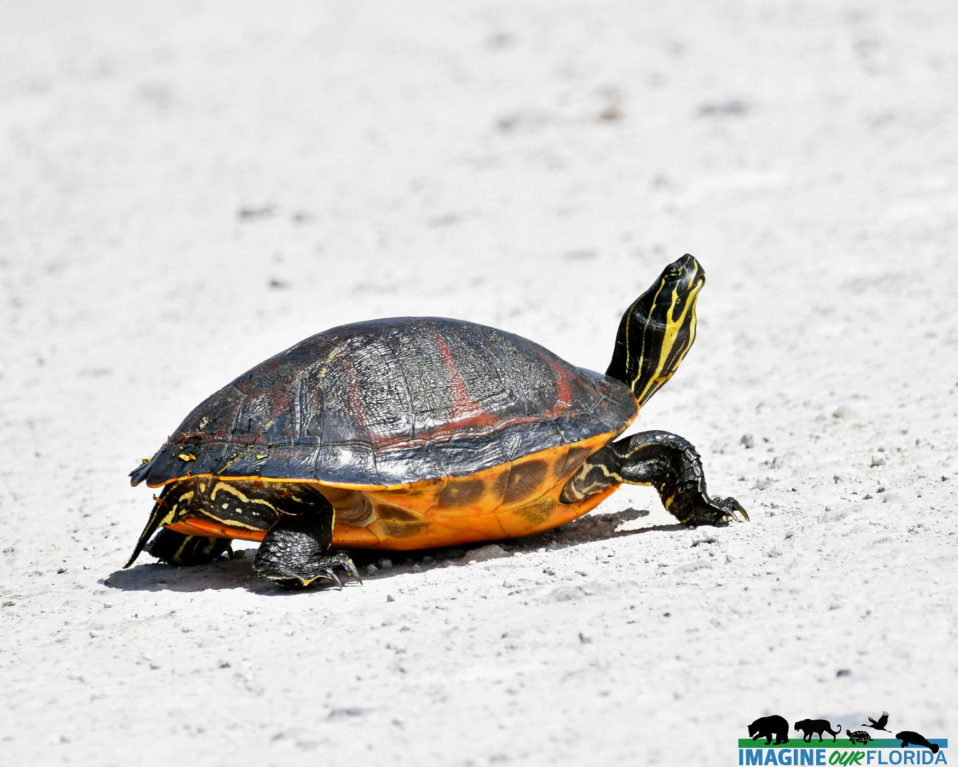
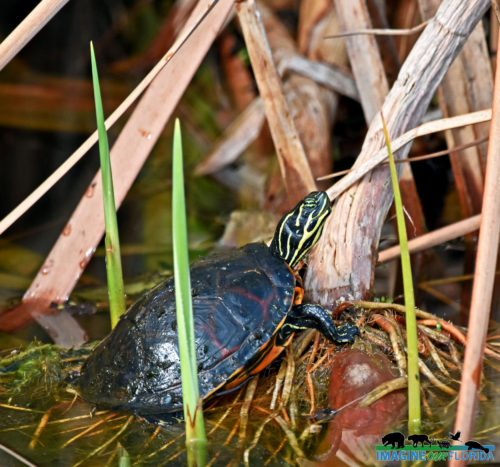
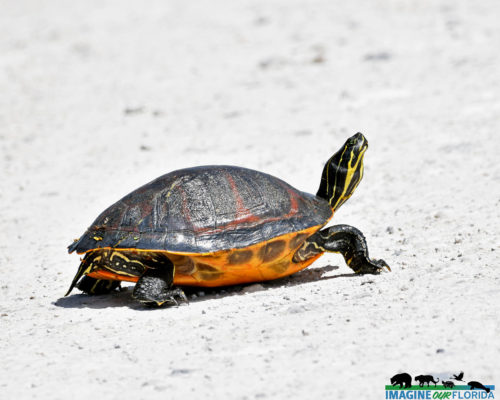
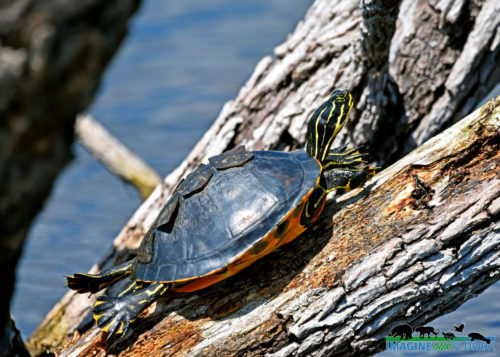
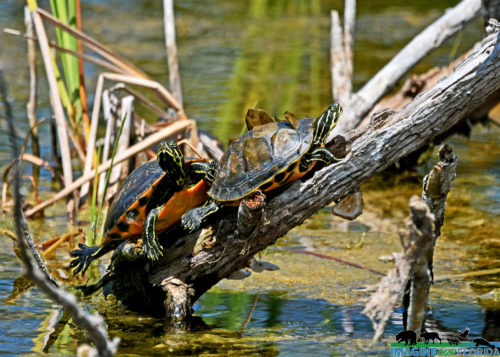
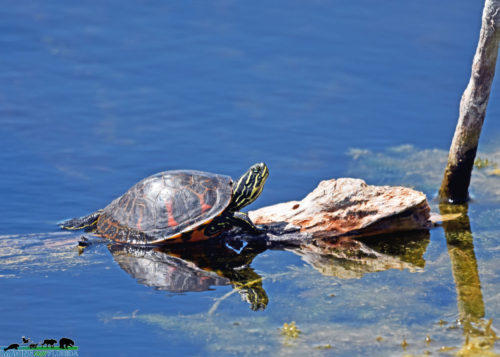
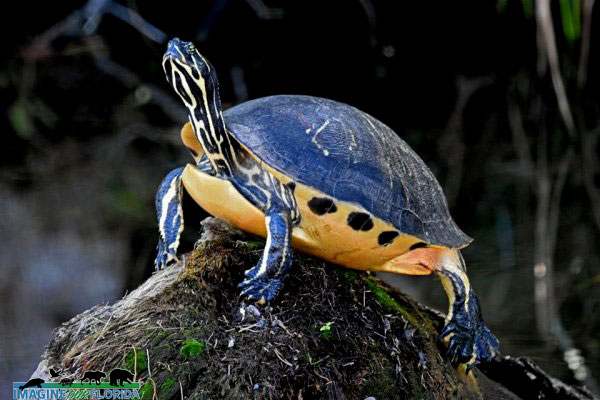
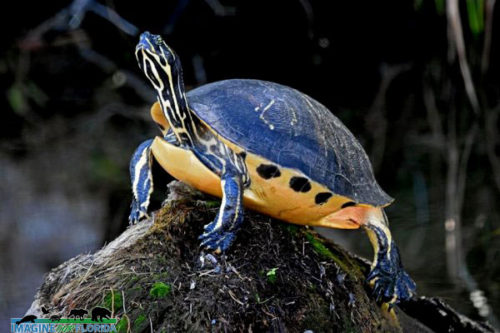
Recent Comments